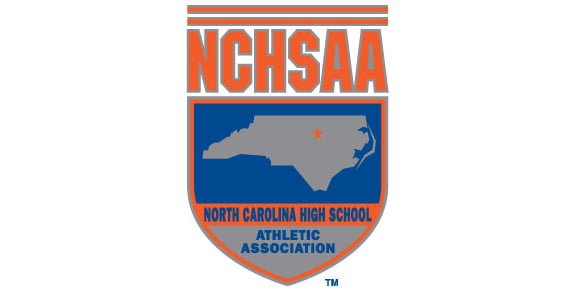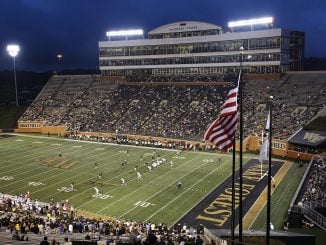
The NC High School Athletic Association is taking a cautious approach toward a return to competition, extending its dead period for organized sports activities by two weeks until at least June 15.
NCHSAA commissioner Que Tucker made the announcement Tuesday during a Zoom conference with members of the statewide media..
Tucker said that the NCHSAA’s Board of Directors are working closely with school system athletic directors to develop a set of guidelines to be followed once workouts are allowed to resume.
The minimum restrictions, which can be overridden by more stringent local rules, will closely resemble those already set by Gov. Roy Cooper, especially when it comes to social distancing. No physical contract will be allowed.
“We know these workouts will look different than most traditional summer workouts and we want to make sure that our full membership is on the same page about what is allowed, what is not,” Tucker said. “It doesn’t matter what we put out there. We have to social distance, which means at least six feet.”
Although Tucker expressed optimism that all sports will “be able to resume all activities after the June 15 deadline,” she was quick to caution that “good decisions” need to be made on when and how athletic activity can continue and that “conditions must continue to improve” for the dead period to be lifted.
In order to minimize the risk, the NCHSAA has recommended schools use the time between now and the June 15 deadline to begin stockpiling items such as sanitizer, gloves, mask and other cleaning supplies to ensure that locker rooms and weightlifting facilities are germ-free.
Tucker said that the ultimate goal of her organization is “to do everything in our power to protect the health and safety of student-athletes, our coaches and our communities.” But at the same time, she acknowledged that at least some athletic participants will ultimately contract COVID-19.
Because the NCHSAA is committed to being “very deliberate” in how it proceeds, Tucker said that “nothing is off the table” when it comes to potential scheduling scenarios.
She said that the options range from moving forward with the fall season as scheduled, pushing back the start of football and soccer seasons for several weeks and shortening the number of regular season games to be played — a change that would include reducing the number of teams qualifying for the state playoffs.
Playing an abbreviated fall season would not necessarily lead to the shortening of the winter sports season — a decision that would be based primarily on finances.
One thing that is certain, at least for now, is that shifting seasons — such as moving football to the spring — is not under consideration. That, Tucker said, would only be done as a last resort.
“I think every state association, like North Carolina, is doing what I’m doing and what my staff collectively is doing,” Tucker said. “That is trying to look at what will we do if A? What will we do if B? What can we do if it’s C? Shortening the number of contests is part of this.”
As for the issue of allowing fans to attend high school football games this fall — something that’s considered a necessity to avoid a financial calamity — Tucker said that the NCHSAA will depend on the guidance of Gov. Roy Cooper before making any decisions.
“We’re not at the point where we’re folding up the tent for football this fall,” she said. “We are hopeful that at least we can have some fans. When you start saying to certain people that you’re not going to be able to get into this home game, that becomes problematic.”ker



